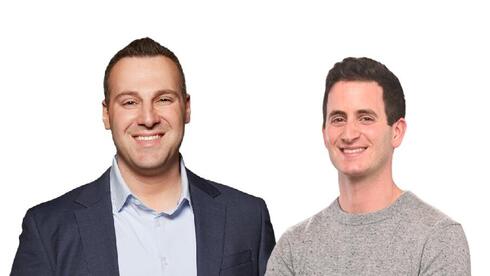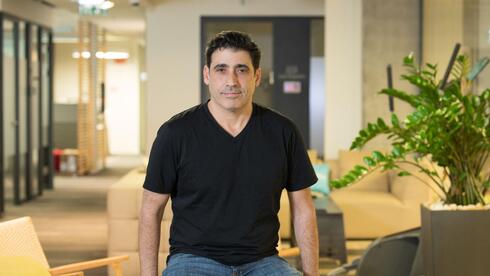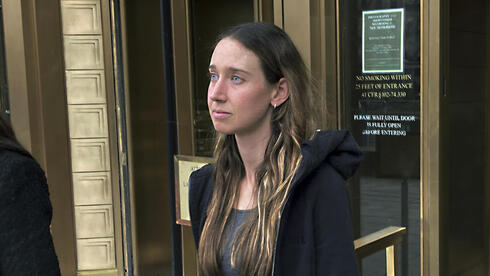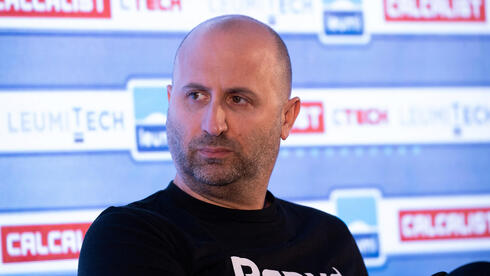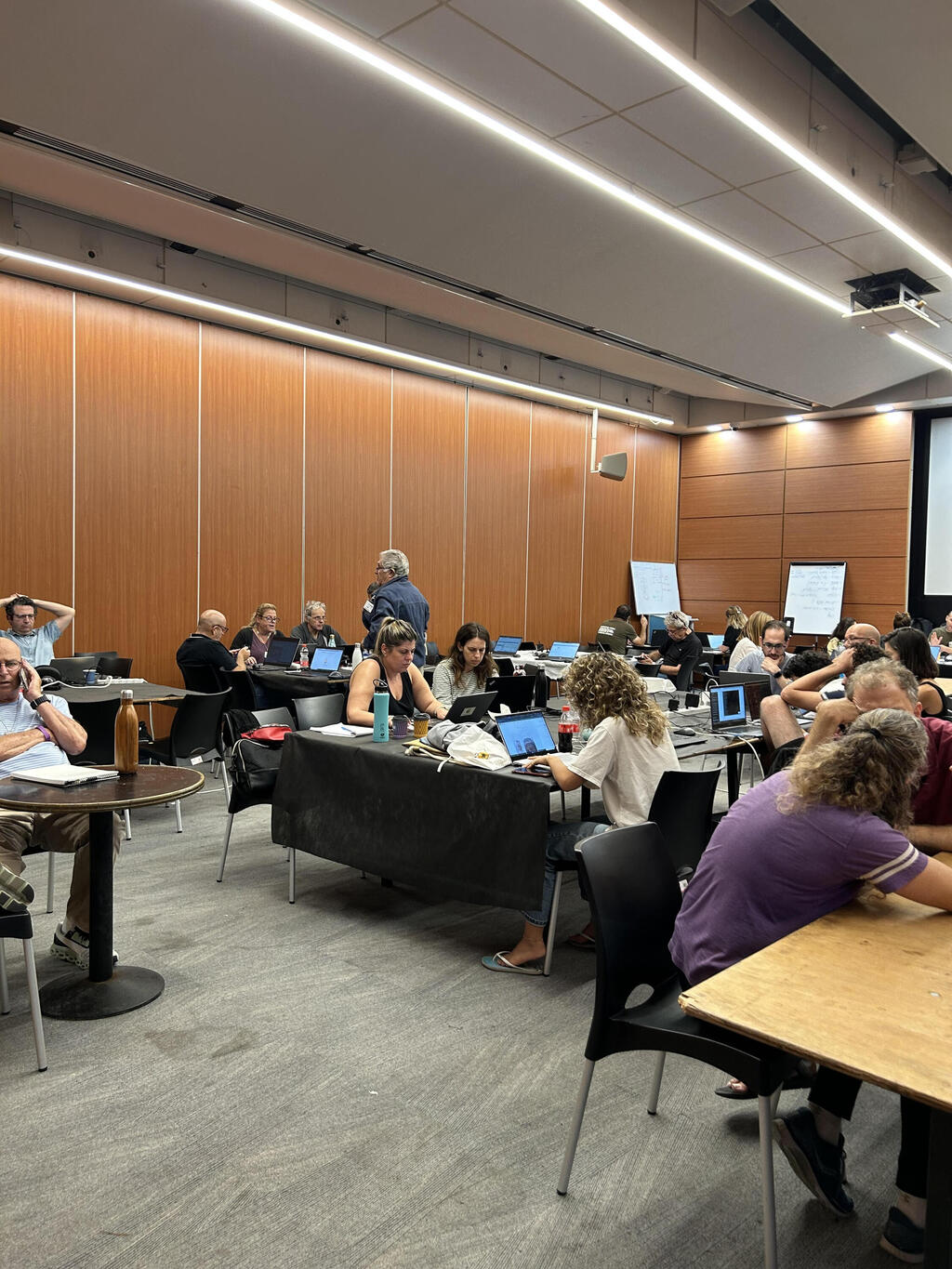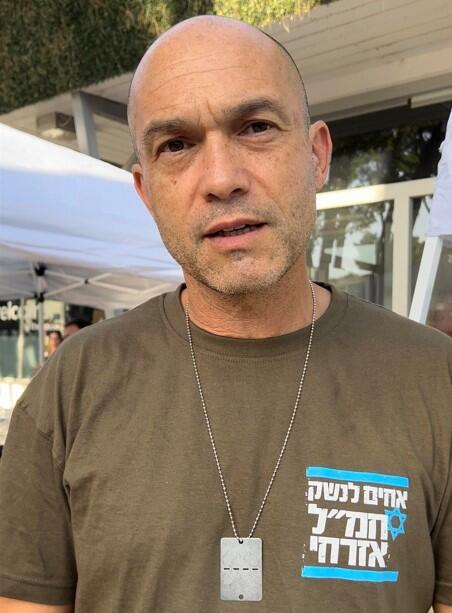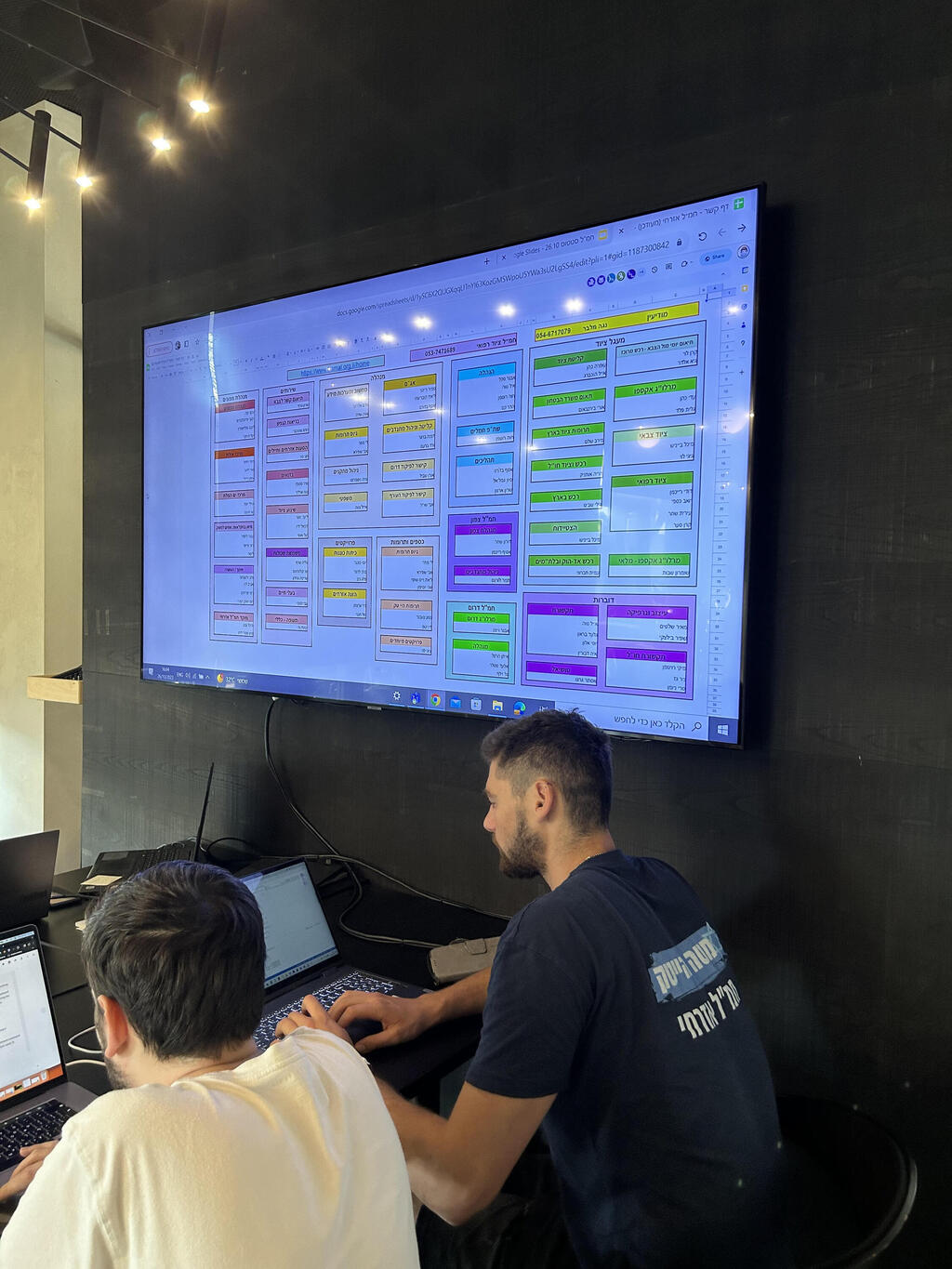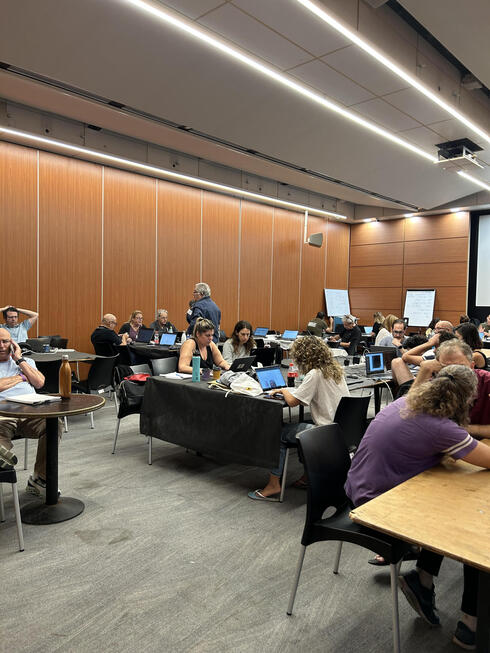
We visited the Brothers in Arms' "Civilian Emergency HQ" and couldn't believe the magnitude of the activity
Lior Avisar got a glimpse into the heart of Israel's main civilian operations room, which operates from Mixer's work centers in the Expo complex. She even got a few words from Gigi Levy-Weiss, one of the organization's leaders, who taught us what "impact plus human contact" means
As we enter the Expo compound, a huge crowd greets us, easing a bit the severe distress we have been experiencing for the past few weeks. Already in the first encounter with security guards and ushers, it is evident that there is real order, security, and organization as well as an immense sense of fate at work. A great sense of "togetherness". It is this feeling that accompanies us throughout the entire visit, and once we entered the arrays, we had no words to describe what we were seeing.
Thousands of volunteers from various ages and sectors work together side by side to rebuild the existence, rehabilitation, and future of the State of Israel.
The Civil Emergency HQ, also called the "Brothers and Sisters for Israel," is the largest civilian aid organization operating in Israel, operating in full coordination with the Israeli military. The organization operates entirely by over 15,000 volunteers – former military personnel, high-tech professionals, students and more. The organization's leading efforts include: support for evacuated families in areas of accommodation, feeding and essential goods, enrichment, mental health assistance and the realization of rights. In addition, the HQ handled the needs of IDF soldiers, from transportation and food, to assistance in completing protective equipment. Also, during the first two weeks, the country's main missing persons hotline operated in the HQ, which coordinated all the information gathering and locating the missing persons in the first weeks, through a call center of 400 volunteers and the use of advanced technologies, such as AI, for identification and detection.
While it appears that the emergency headquarters at the Expo is the one of the main pillars in the reconstruction the Israel, the HQ leaders offer a much more modest approach. In my conversation with Gigi Levy-Weiss, usually one of Israel's top and best known VC investors, who is also one of the founders of the Civil HQ and one of its most prominent figures there, we saw modest, broad, focused, and effective work: "We are not competing with the state. The country's success is our success. The Civil Emergency HQ cooperates with the Ministry of Defense, the army, the police, and local authorities. Our goal is to help those who need it in the fastest, most efficient, and dignified way. The HQ is composed of "Brothers-In-Arms" (led by Eyal Naveh and others), "Alternative Builders", the High-Tech Operations room, and other organizations. There is amazing cooperation between us and other associations and organizations. The civil society in Israel has truly risen to new heights."
When Gigi talks about assistance in a dignified way, he means it: "Wherever we need to prioritize between impact and impact plus human contact, we will choose impact plus human contact. For example, when a family needs a package with food and diapers, it's not enough to send them the equipment. As far as we are concerned, the significant value is in a volunteer from Tel Aviv who will arrive with the package to the family in Ashdod, give a hug, ask how they are, and see them. That's the really significant part."
So, how does a three-week-old organization manage such a colossal and impactful initiative?
The secret is - we bring in people with the highest abilities to manage things. On the first day, we already understood that there would be a problem with flights to Israel. I picked up the phone with Einat Guez, Papaya Global's founder, who, in less than 24 hours, managed to lift a fleet of planes from all over the world that, in recent weeks, have flown thousands of reservists and Israelis back home. In the same way, our feeding project is in collaboration with "The Brothers" restaurant, which established a factory that manages to feed countless people a day, all on a voluntary basis. We were fortunate to work with a collection of amazing people - Michal Beinisch, who manages procurement; Keren Levy, former president of Payoneer, who raised the issue of integration of requirements; and Uri Birenbaum, who deals with outsourcing the army's procurement. The infrastructure is Mondays, accounting through Deloitte. All voluntarily and with a big heart."
Still, Gigi was also surprised by the actual execution. "Brothers in Arms people are simply the best people for any task. Avner, who runs the HQ; Eyal, founder of Brothers In Arms, who I work closely with; Eitan, one of Brothers in Arms' founders; and Oren Shweil, who raised the center with him in Beit Kama. In the first days of the fighting, in coordination with the army, 2,000 rescues were carried out by Brothers-In-Arms, some of them under fire, of families left behind. The HQ also rescued people who were infertile, elderly, or disabled who could not evacuate on their own. "We reached places where there were people who didn't understand that the country wasn't over. Those who remained inside the safe room and as far as they were concerned, thought that this was the end of the State of Israel. Some of them wouldn't leave even when we got to them," Gigi explains.
What about Israel's future? Do we have reasons to be optimistic?
"The HQ has three goals: The first is to help the IDF win. The second is that everyone who was hurt by this incident will go through it with as little pain and difficulty as possible and with as much respect as possible. And the third – to be part of the construction process. After this event, Israel is going to a major reconstruction process." Gigi adds confidently: "We are in the most difficult period we have ever experienced in the State of Israel. And despite the difficulty, if I have to think about what will happen next, then knowing that there are people like this who do everything for it to be better, with a huge heart and zero politics, makes me optimistic. What is happening here and in other organizations is the edge; this is the peak of the Israeli spirit. And this Israeli spirit makes me know that not only will we win, we will also be able to rebuild here a better, more united state, and with a better-shared future both in the Gaza envelope and in the entire State of Israel."
Galia Scharf, another founder of The Civil HQ adds "Since the beginning of the war, the weeks have passed, and the HQ's war room hasn't stopped working and adapting itself to changing needs. On the same day, a market for the sale of crops and agricultural produce from around the envelope was held there. The produce was sold in full within a few hours and the money was transferred in full to the injured farmers. As part of the tour of the compound, we also arrived at the evacuees' war room, whose goal is to provide a response to any place with a concentration of evacuees, and to provide food packages and equipment, as well as entertainment and performances, education and early childhood help. On the way there, I had already heard about a new war room being set up, whose goal is to assign each wounded, a "big brother" volunteer, who can help them with anything they need: We want to relieve the wounded in any need that arises".
Although it is well backed by many supporters and major Hi-Tech companies, the Civil HQ is currently raising further funds.
First published: 13:45, 30.10.23






